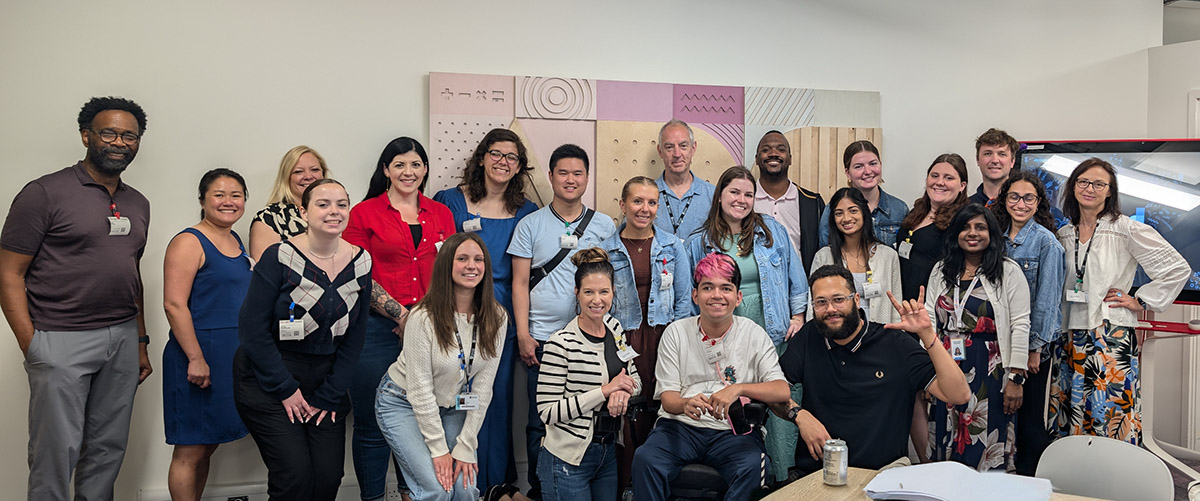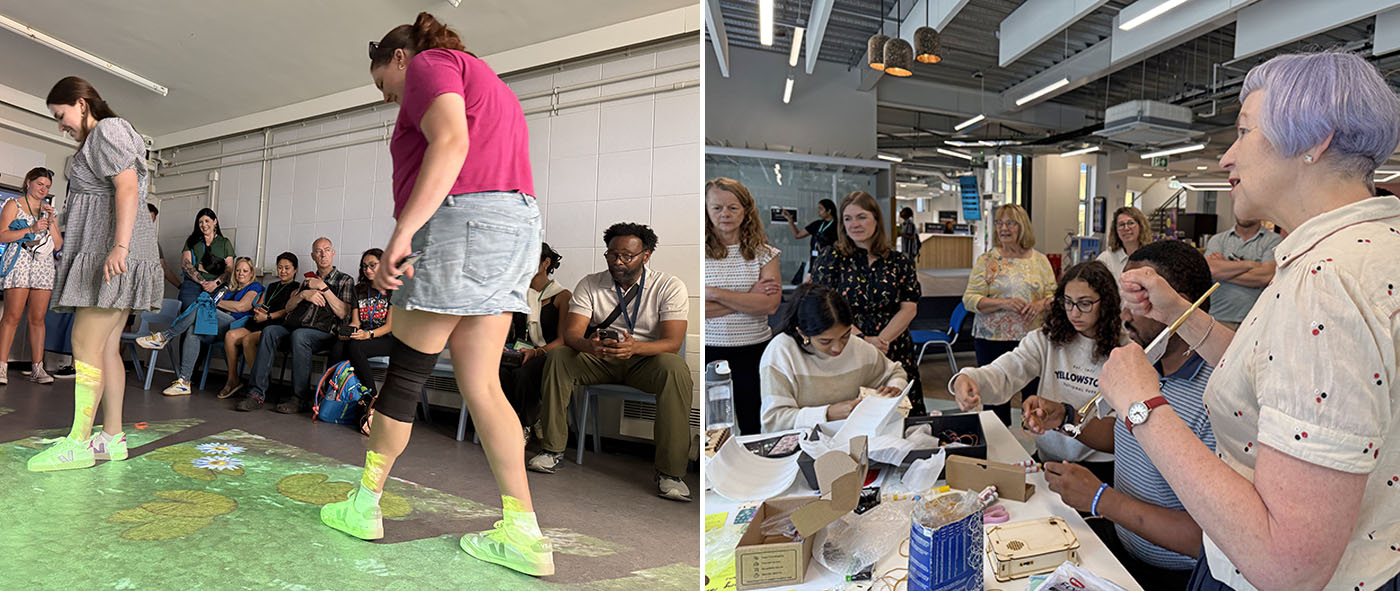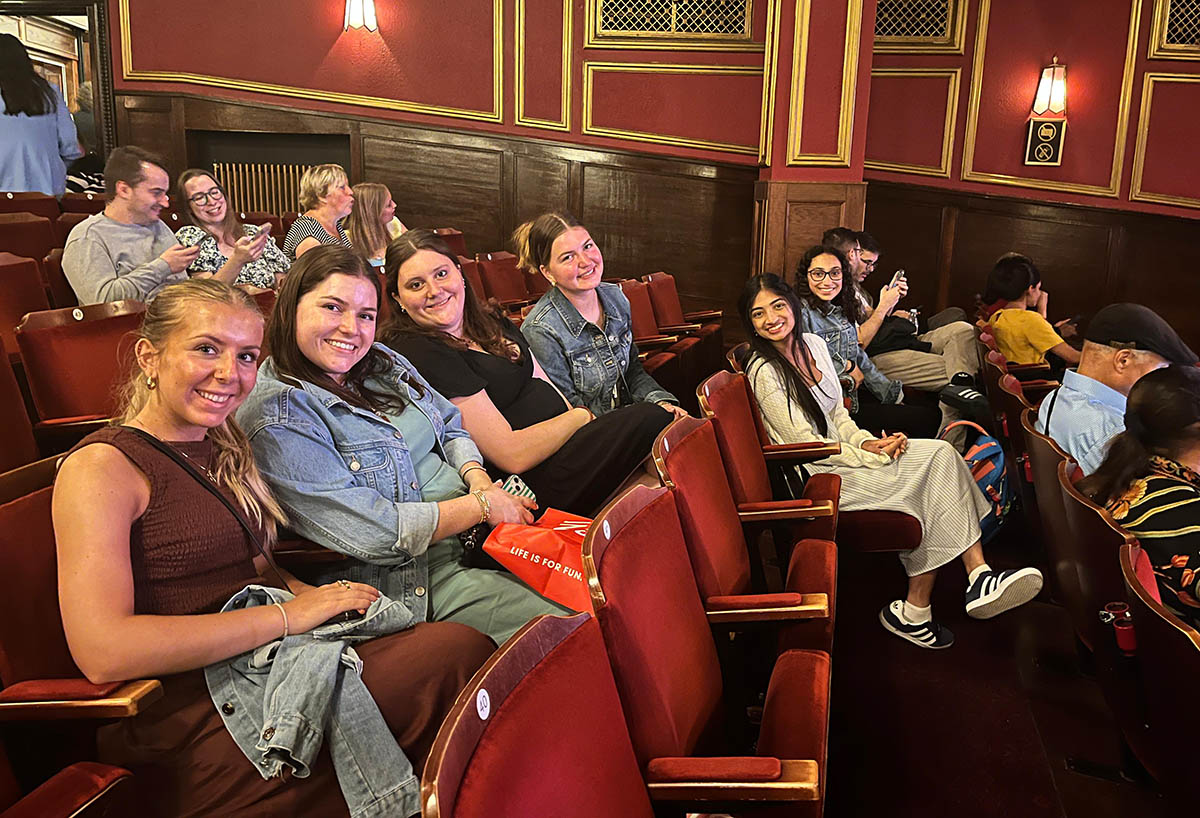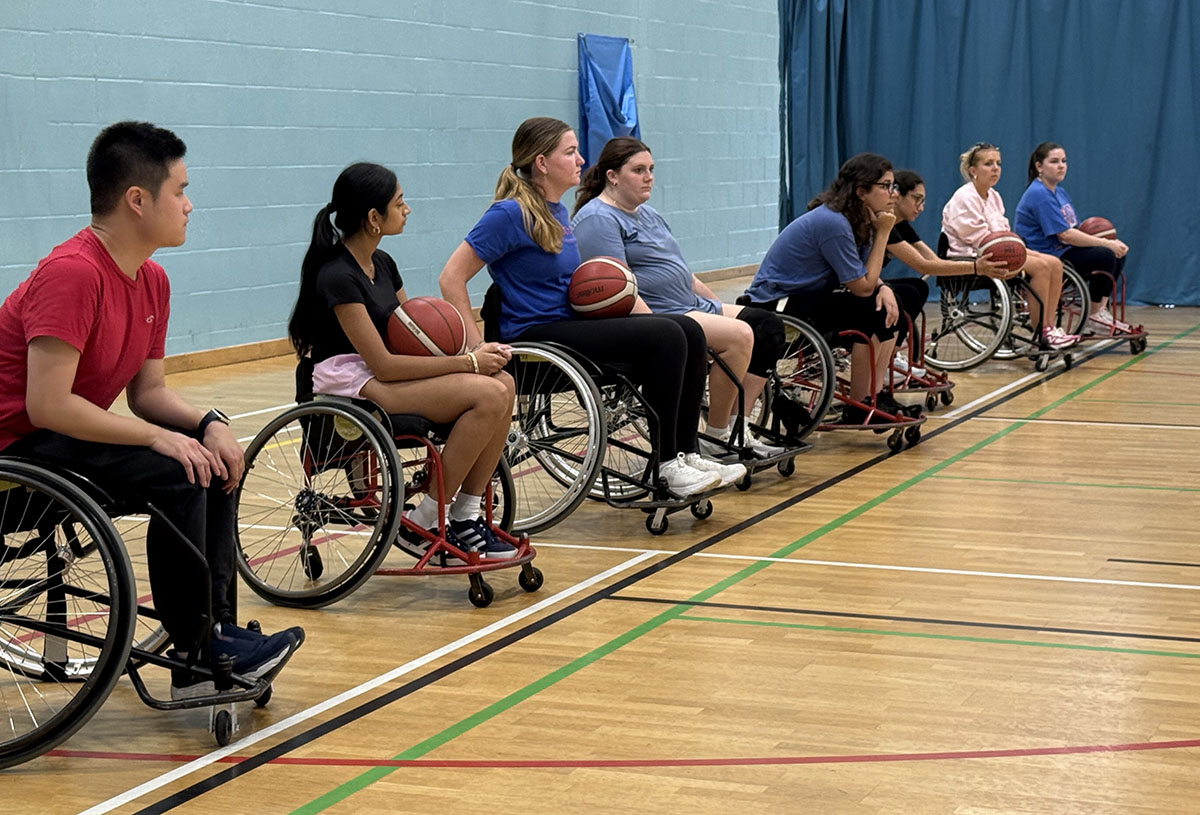From 15 to 28 June 2025, we proudly hosted our first ever study abroad summer school for university students with disabilities and differences. In partnership with the University of Florida and Learn International, this pioneering programme, Technological Applications for Disability Access, brought together ten students and seven faculty members and supporters for an unforgettable two weeks of learning, innovation, and community building in the heart of London.

Over the course of the programme, participants engaged in a rich, person centred curriculum designed to explore accessibility through multiple lenses—urban design, digital media, sport, transportation, education, and the arts. The initiative combined immersive site visits, collaborative group work, academic lectures, and a dynamic 10-day hackathon to empower students as innovators and agents of change in their own communities. For the last three days we also welcomed representatives from nine American universities who wanted to see the programme before sending their students next year.
Each day was structured to build knowledge, skills, and inclusive design thinking. Students were introduced to the principles of Universal Design, assistive technologies, and multimedia advocacy. They learned how inclusive research and co-production methodologies could be applied to address real-world barriers experienced by disabled people.

Among the standout highlights was a visit to the Google Accessibility Discovery Centre at King’s Cross, where students interacted with state-of-the-art inclusive technologies. The group also enjoyed immersive learning experiences at the Victoria and Albert Museum, Charlton Park Academy, and Tottenham Hotspur’s stadium. Each of these visits provided insight into how accessibility can—and should—be embedded into every facet of life, from education to culture and sport.
Throughout the two weeks, students were inspired by a diverse array of speakers, including contributors from the BBC, Transport for London, and UCL’s PEARL research lab. Sessions explored everything from digital self-advocacy and the future of accessible transport to the role of inclusive technologies in modern media.
Transport for London’s session on co-production and their ongoing work on the RoboRamp project offered a powerful case study in inclusive urban design. Meanwhile, presentations from academic leads at UEL—including myself and my colleagues Dr Nic Hollinworth, Dr Kate Allen, and Dr Paul Watts—covered themes like accessible education, health, sport, and cultural inclusion.
At the heart of the programme was Hackathon25, and a follow on 10-day collaborative project where students worked in groups to identify real-life accessibility issues and co-design innovative solutions. Supported by inclusive researchers, faculty, and community partners, students applied everything they had learned to develop meaningful prototypes.
The three final group projects reflected the passion and creativity of the participants
- Right of Way Initiative – focused on improving the accessibility of pedestrian crossings, promoting independence and safety for all
- Clean Commute – designed a public sanitation station system for wheelchair users and other commuters needing access to hygienic facilities during travel
- Accessible Learning with Personalised Books – a solution aimed at making reading materials more inclusive, particularly for learners with cognitive or sensory differences
These final projects were presented during a celebratory graduation event on Friday 27 June where each group showcased their prototype, poster, and learning journey. The event was attended by Robert McLaren, Director of Policy at Policy Connect, academic staff, industry guests, and representatives from the visiting universities, creating an atmosphere of pride, excitement, and future potential.

Beyond the classroom, students enjoyed the full spectrum of London’s cultural offerings. Theatre trips, the London Bus Tour, and excursions to iconic locations like the O2 via cable car added a sense of adventure. A wheelchair basketball session, run by the UEL Phoenix team, offered not just physical activity but a vital reminder of the importance of inclusive recreation.

Living together in student halls and sharing meals, challenges, and wins, students formed strong social bonds that made the entire experience not just educational, but truly transformative.
This was the first study abroad summer programme of its kind focused on disability and inclusive innovation in London. It was a pilot year full of discovery—for the students, for UEL, and for our partners. We learned valuable lessons about making campus spaces more inclusive, about how travel and accommodation must adapt, and about how the voices of students with disabilities can shape research and design when given the right platform.
Looking ahead, the Rix Inclusive Research Institute is committed to building on the insights from this programme. We aim to embed inclusive international experiences into our curriculum, grow our partnerships across the globe, and ensure that London becomes a leading destination for inclusive innovation in higher education.
Together, we’ve taken the first step in creating a global, inclusive campus. The journey has just begun.
Gosia Kwiatkowska, RIX Director
Mobility International USA article
